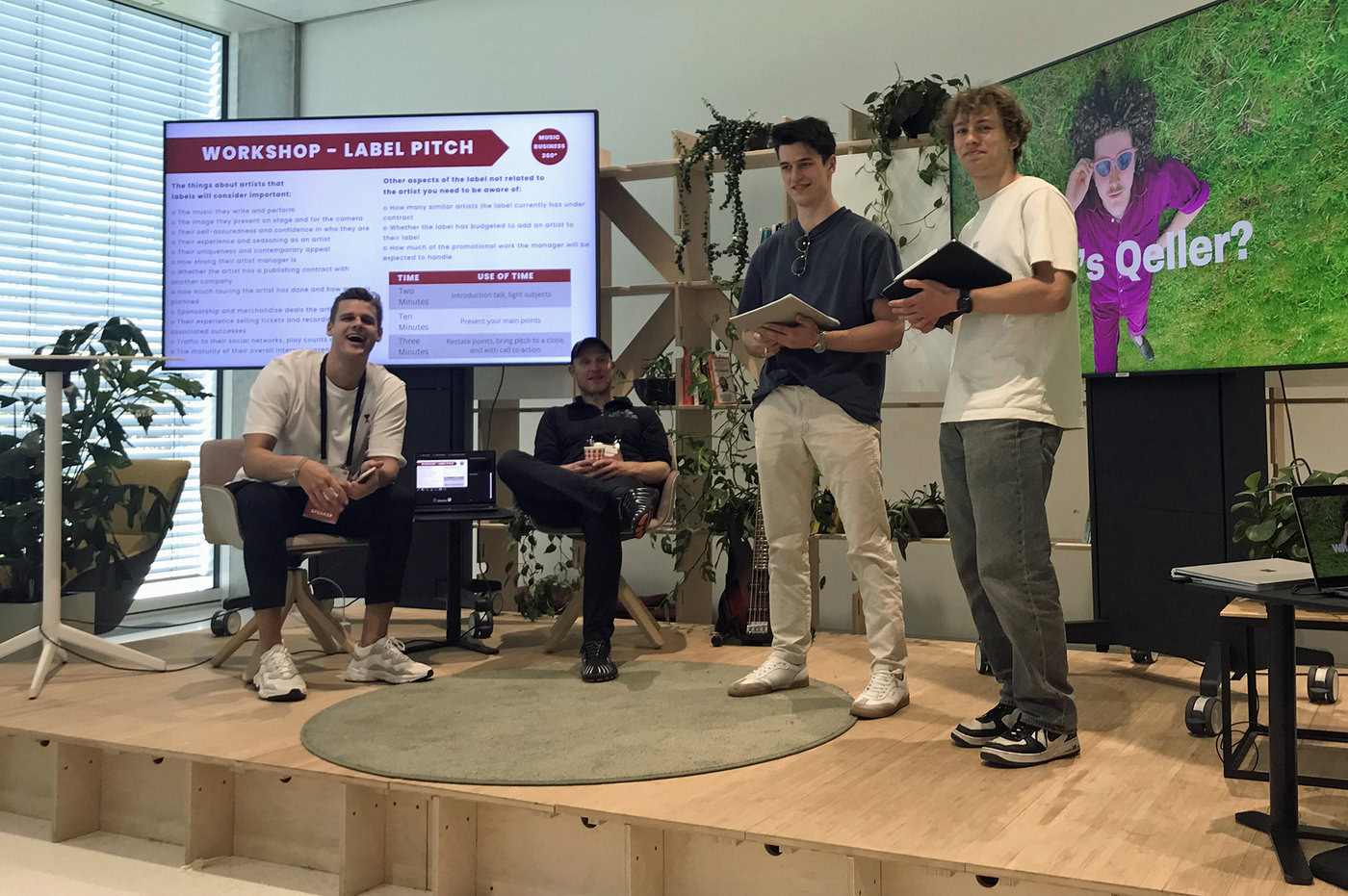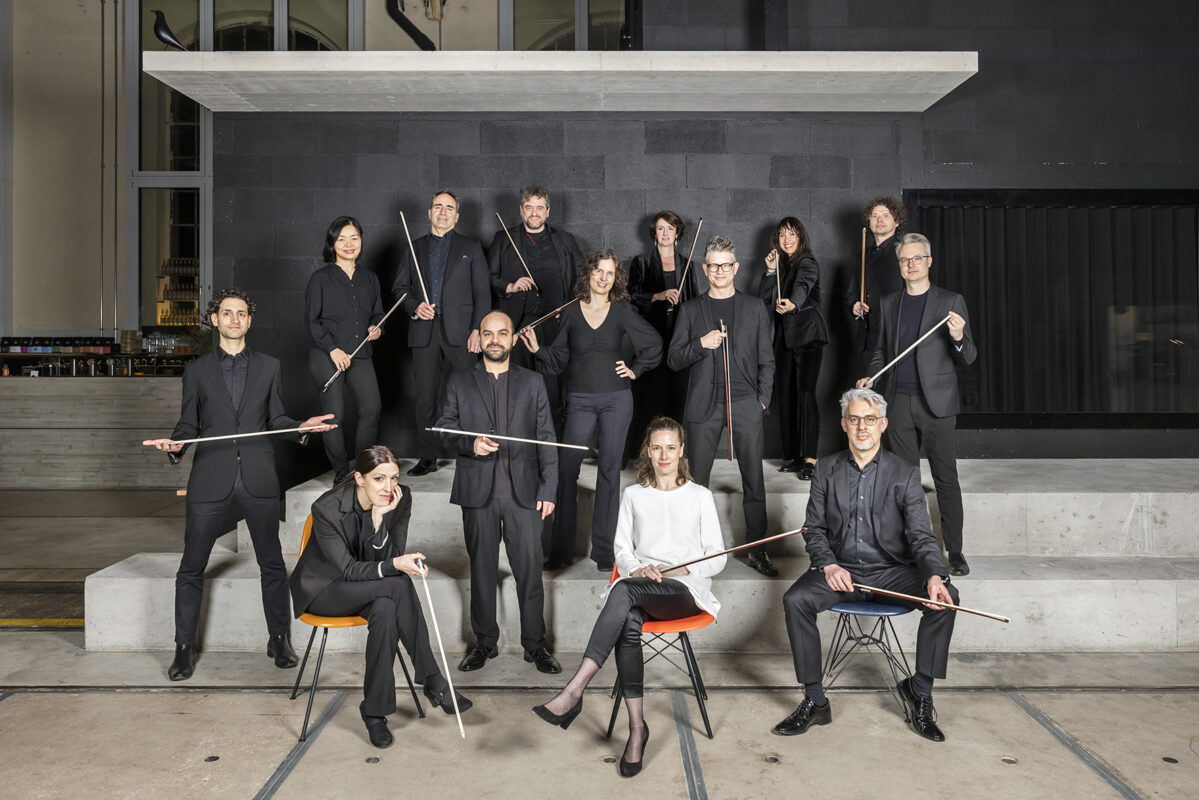Compact introduction to the music business
Anyone who wanted to get an overview of the mechanisms in today's music business had the best opportunity to do so on May 10 and 11. A report.

At the University of St. Gallen, an association of students called "Amplify" is working to ensure that music also has its place at the business and management school. It was approached by the Music Managers Forum (MMF) Switzerland, the "Swiss Association of Music Managers". Amplify readily accepted the suggestion to organize a workshop on career opportunities in the music industry. Right from the start, the workshop provided a highly interesting insight into the engine room of the industry. The fact that the workshop entitled "Music Business 360°" even fills a gap internationally was demonstrated not least by the fact that numerous interested parties from Germany also traveled to the event to benefit from the crash course and networking.
Start your career
With the help of talents at the beginning of their careers, the participants played through how self-marketing on social media, contacts with management, labels and finally concert organizations have to be organized. The real-life newcomers Qeller, Katy Delusion and Manic Pixxies served as models.
The first thing we learned was that a whole new market has emerged with regard to launching a career in the music business. Today, labels and agencies generally get involved when newcomers have built up a solid fan base with the help of online platforms such as Spotify, YouTube, Instagram and Tiktok and already have singles, EPs (extended plays) or entire albums including video material. This has opened up the market for start-ups that are actively involved in building a fan base on social media. Berlin-based Jukebird and London-based Playliveartist, which offer support in building a digital reach, were represented in St. Gallen.
Finding global niches
Statements by Andreas Ryser, CEO of the Swiss indie label Mouthwatering Records with acts such as Black Sea Dahu and Evelinn Trouble, made people prick up their ears. Ryser is also President of the Association of Independent Music Labels in Switzerland. The indies have their strengths in the niches that are of no interest to the big three - Sony, Warner and Universal - due to too much effort in markets that are too small. The very small and also linguistically fragmented market in Switzerland should be such a niche - geographically speaking. However, the internet, streaming and social media have completely redefined and paradoxically globalized the understanding of niches.
If you position yourself in a niche, you may have far too small a community in one country. But if you find the same niche in all countries worldwide, you have a very interesting market. As a result, those active in a niche no longer target a domestic audience, even in Switzerland, but try to operate globally from the outset. Furthermore, globalization, diversity and identity politics have fragmented the market to such an extent that one can say that the niche is the new mainstream: The niche is the new mainstream. Geographical and local identities hardly play a role in the global urban music scene anymore, as Ryser went on to explain.
Making money with "old" songs
The streaming services - Spotify, Apple, Amazon etc. - have also revolutionized the market in other respects. This was explained by Robin Kreimeyer, representing Sony Music GSA (where GSA stands for "Germany, Switzerland and Austria"). Whereas new releases used to generate sales in the initial phase, users are now also (and above all) listening to music from the past, which means that sales of a song can extend over years, even decades. The major labels therefore mainly cash in on the back-up catalog. The copyrights of a musician thus become an investment, comparable to a share that generates a dividend over years or decades. It is therefore not surprising that established top acts such as Bob Dylan, Bruce Springsteen, Neil Young, Rod Stewart and others can now sell the rights to their songs for hundreds of millions in some cases.
Swiss players on the rise
The St. Gallen crash course ended with a public viewing of the European Song Contest. Nemo's victory underlined the impression in the workshop that Switzerland is on the verge of becoming a major player in the European creative industry or even a trendsetter in the sector.
The dynamic has already spread to all areas of production and management. Service providers such as the Aarau-based production company Solver, which has already organized extensive concert tours on four continents, or Zurich-based NoHook, which now has a say in the rap scene beyond national borders, are also likely to become better known in this country. The scene is becoming increasingly networked internationally. One of the guests in St. Gallen was the legendary English producer and manager Stephen Budd, whose warm-heartedness and empathy in coaching newcomers put the cliché of the cynical and materialistic music industry into perspective in an impressive way.









